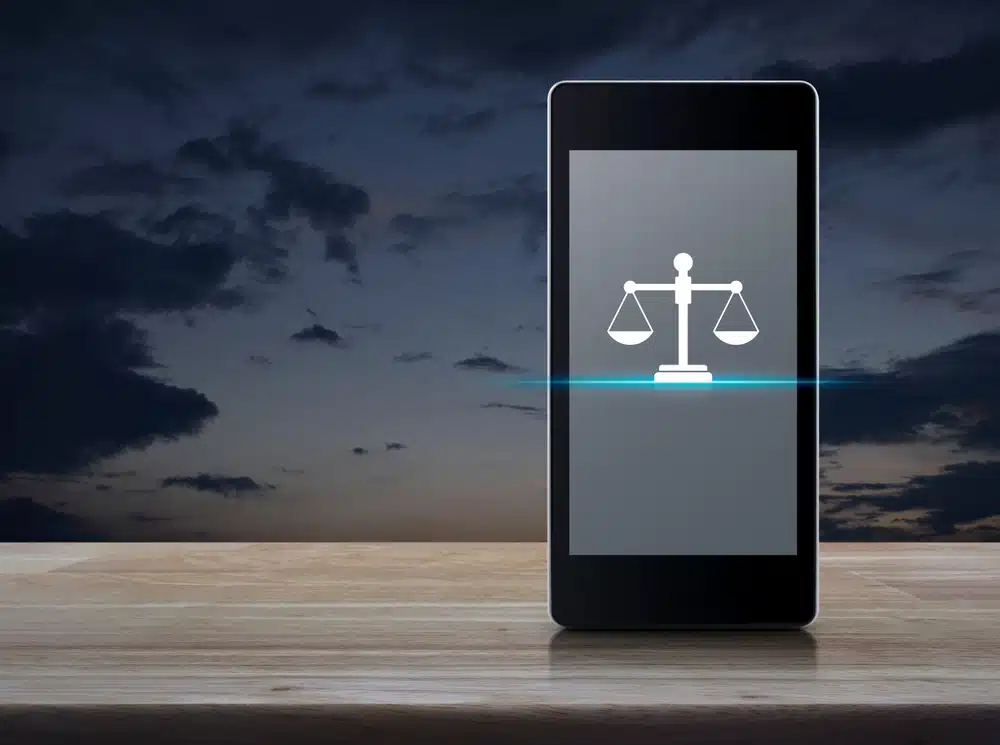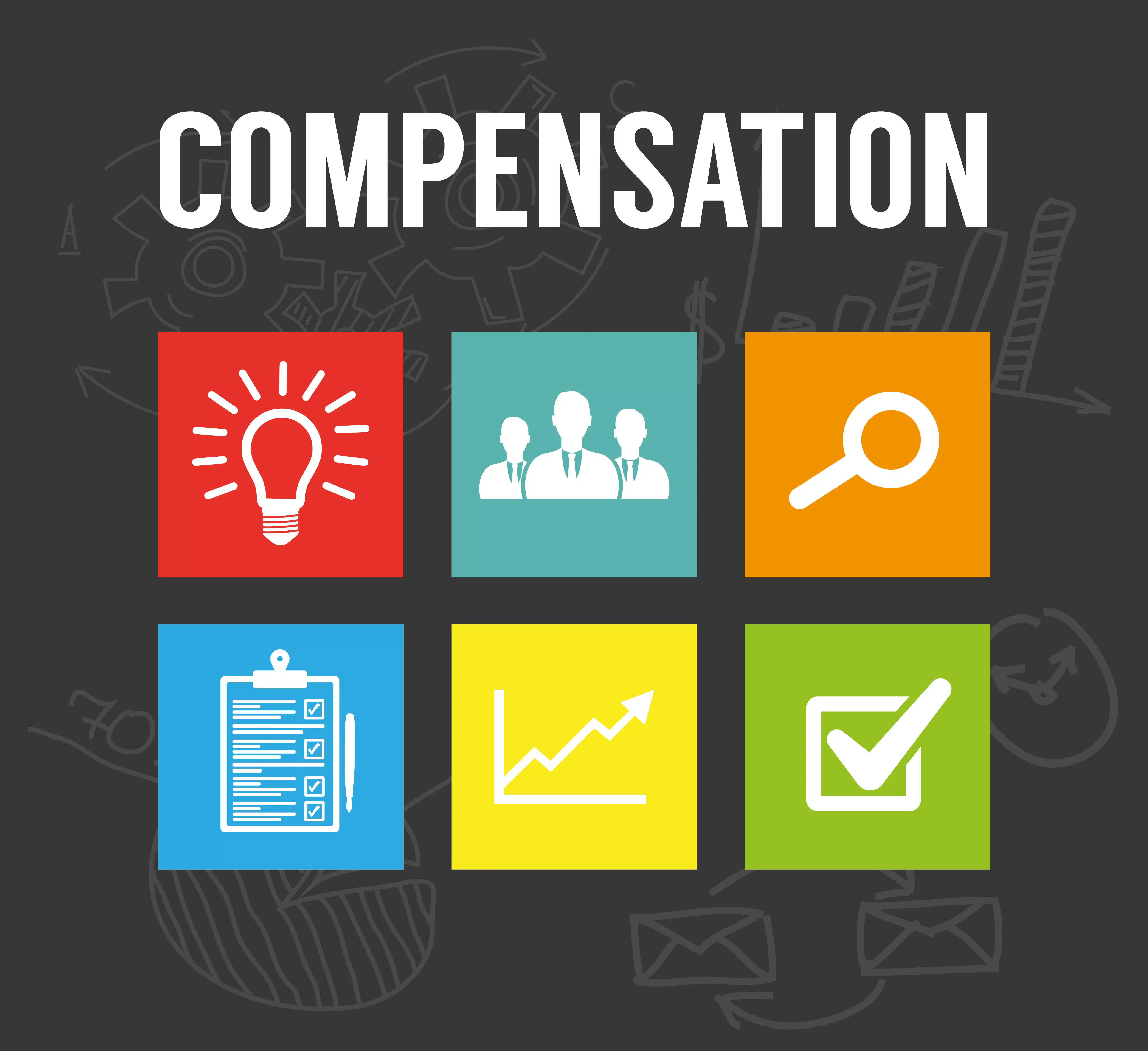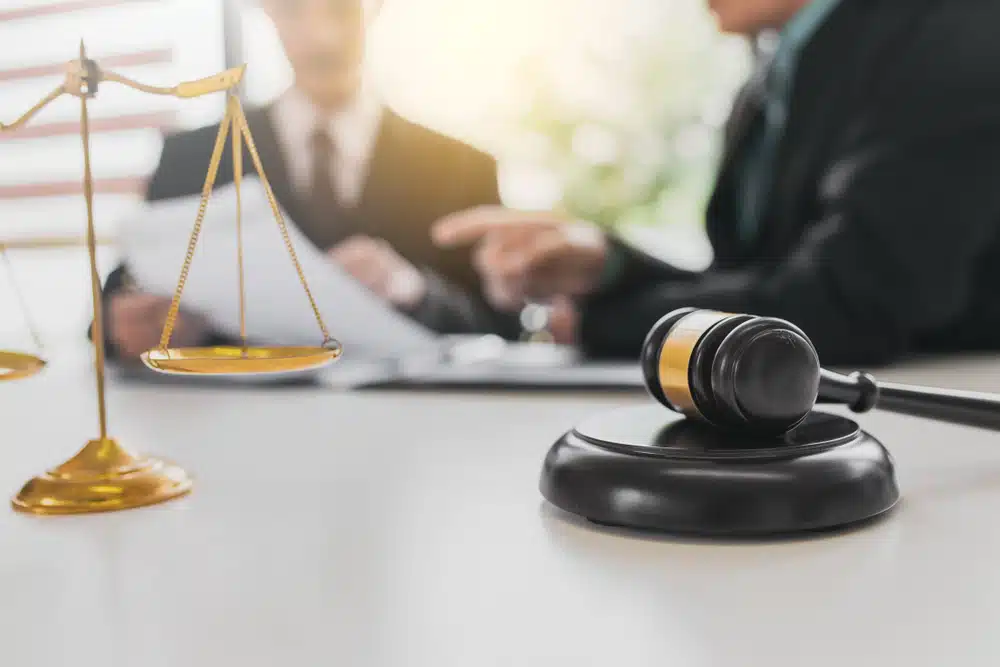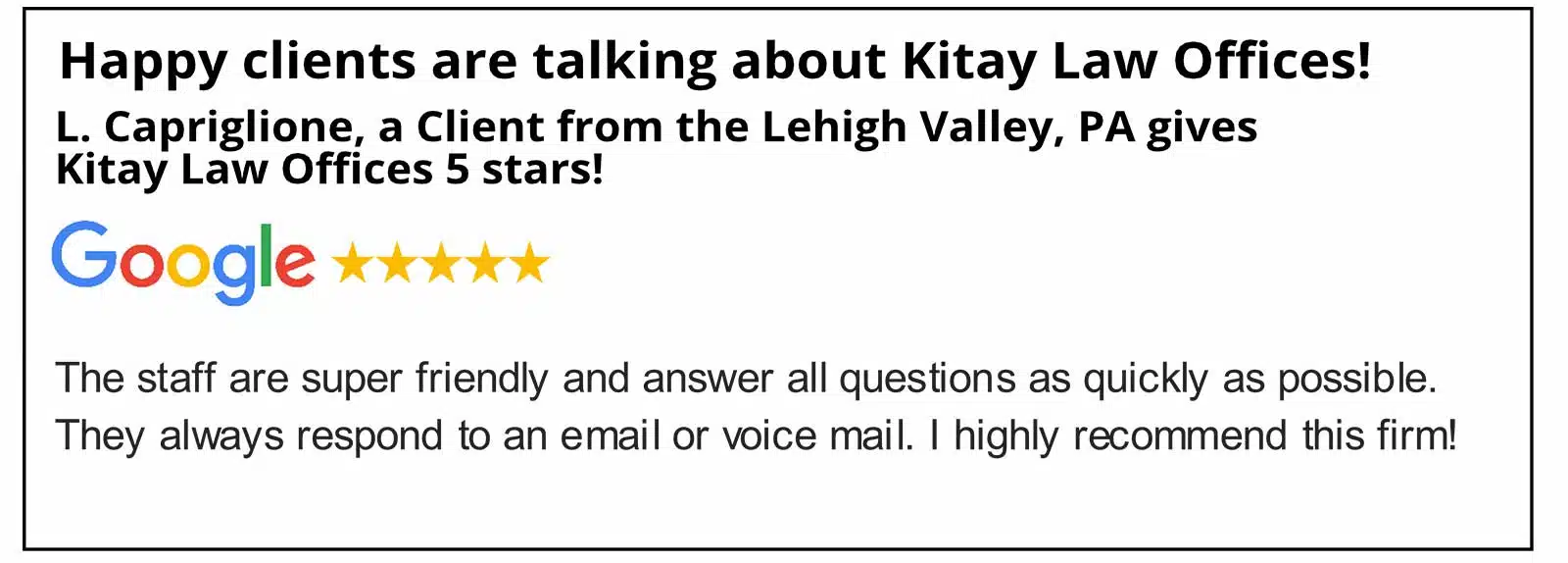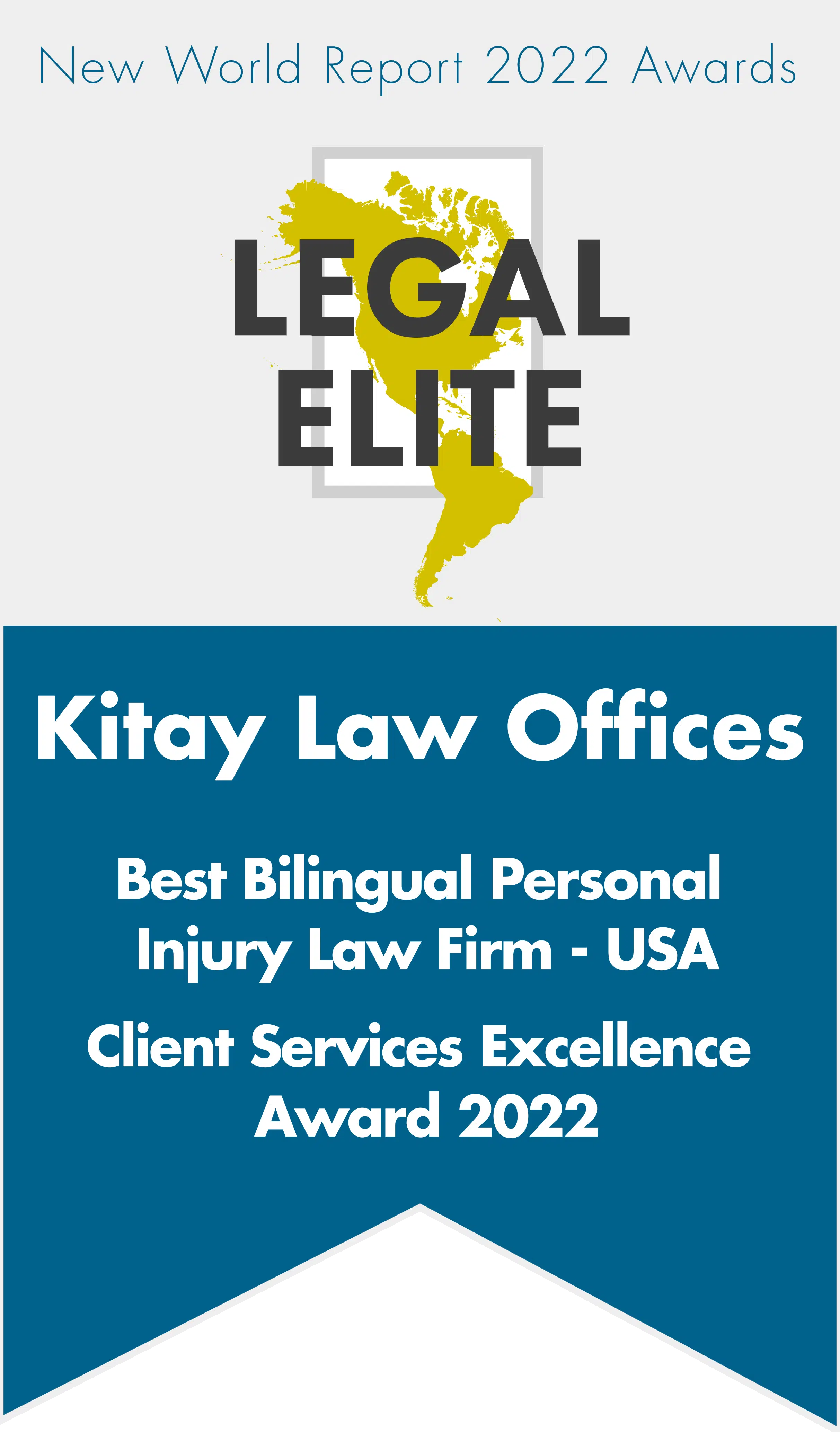More than 92% of U.S. teens are active on social media [1] — and nearly half say they’re online “almost constantly.”[2] Platforms like Instagram, TikTok, Snapchat, Facebook, YouTube, and Discord connect us, but they’re also fueling a growing mental health crisis among young people.
School districts across the country are also taking legal action due to the impact of social media addiction on students.
Kitay Law Offices represents Pennsylvania families — and, through our national partnerships, eligible clients across the U.S. — in social media addiction lawsuits that hold tech companies accountable for designing platforms that exploit addictive behaviors in minors and young adults. These lawsuits involve plaintiffs from a wide range of geographic and socioeconomic backgrounds, demonstrating the widespread nature of the problem.
For over 30 years, Kitay Law Offices has been winning cases and recovering millions of dollars for our clients. We are “The Law Firm With a Heart” and will put every effort into your case.
Contact us to schedule your free, confidential case evaluation. Fill out our online form or call 888-KITAYLAW.
LEARN MORE: About Us
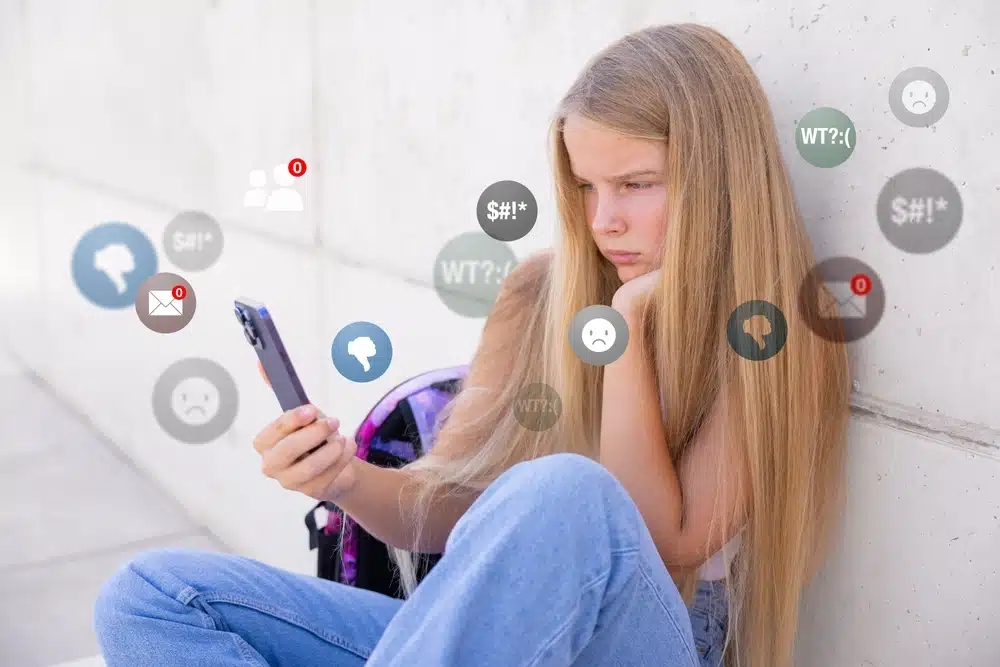
KITAY LAW OFFICES
HAS BEEN FEATURED IN:

SKIP TO CONTENT:
- What Is the Social Media Addiction Lawsuit?
- How Social Media Affects Mental Health
- Platforms at the Center of Lawsuits
- Why Social Media Is Addictive
- Pennsylvania’s Role in the Lawsuits
- Do You Qualify for the Lawsuit?
- Compensation We Pursue for You
- Holding Social Media Companies Accountable
- Eating Disorders and Social Media: A Hidden Danger
- Our Own Families Are Affected Too
- What To Do About Possible Social Media Addiction?
- The Future of Social Media Regulation
- Our Locations: Contact Us
- FAQs about Social Media Addiction Cases
- Helpful Resources
RECENT SETTLEMENTS:
What Is the Social Media Addiction Lawsuit?
The social media addiction lawsuit seeks justice for victims harmed by platforms that were deliberately engineered to be addictive. These lawsuits are part of a broader social media addiction litigation effort, including the multidistrict litigation (MDL), targeting not only companies like Meta, TikTok, Snapchat, YouTube, and Discord, but other social media platforms as well.
These lawsuits allege that these companies:
- Built features that create a social validation feedback loop to keep users engaged.
- Harvested personal data and delivered hyper-targeted content.
- Used addictive algorithms and endless scrolling to maximize time on site.
- Ignored internal research showing significant mental health harm to young users.
- Caused psychological or physical harm to children and adolescents through their platform designs and practices.
This litigation is part of MDL 3047 in federal court and Judicial Council Coordinated Proceeding (JCCP) 5255 in California state court — two of the largest technology-related mass tort cases in U.S. history.
“There are ample indicators that social media can ... have a profound risk of harm to the mental health and well-being of children and adolescents.”- Dr. Vivek H. Murthy, Physician & former United States Surgeon General
How Social Media Affects Mental Health
Excessive social media use is linked to serious emotional health harms and conditions, including:
- Anxiety
- Depression
- Body Dysmorphia
- Eating Disorders
- Suicidal Thoughts
- Self-Harm
Each like or notification delivers a dopamine “hit,” reinforcing addictive use. According to the U.S. Surgeon General, adolescents who spend more than three hours daily on social media are twice as likely to experience negative outcomes.[3]
The Platforms at the Center of the Lawsuits
The cases focus on major social media platforms and social media apps accused of harming young users:
- Meta (Facebook & Instagram) – accused of hiding internal research on teen mental health harm while using a persuasive design and engagement-driven interfaces that encourage prolonged use, contributing to addictive behavior.
- TikTok – tied to dangerous viral challenges and addictive short-form content. As a leading social media app, TikTok’s algorithms are designed to maximize user engagement, especially among young users.
- Snapchat – linked to compulsive use “streaks” and fentanyl-related tragedies. Snapchat, like other social media apps, employs features that can foster addictive behaviors.
- YouTube (Google) – autoplay and recommendation algorithms designed to keep minors online for hours. YouTube is one of the major social media platforms facing scrutiny for its role in the mental health crisis.
- Discord – chatrooms with little to no moderation where harmful content spreads.
Legal debates also focus on how social platforms are protected under Section 230 of the Communications Decency Act, which affects their liability for content posted by users.[4]
Why Social Media Is Addictive
Like alcohol or drugs, people can become addicted to social media. Addictive social media is intentionally designed to maximize user engagement, using features and algorithms that keep users coming back for more. Social media companies design their platforms to trigger and maintain compulsive use through:
- Dopamine Feedback Loops – likes and comments reward engagement.
- Endless Scroll & Autoplay – removing natural stopping points.
- Push Notifications – prompting constant checking.
- Algorithmic Targeting – content feeds optimized to hold attention.
- Data Harvesting – tracking user behavior to refine addictive tactics.
These designs encourage extensive social media use, which can lead to addiction and emotional harm, especially among young users.
These are not accidents — they are deliberate business strategies. The compassionate, social media addiction attorneys at Kitay Law Offices will fight for your justice and compensation when these companies have harmed you or a loved one.
“At a moment when we are experiencing a national youth mental health crisis, now is the time to act swiftly and decisively to protect children and adolescents from risk of harm.” - Dr. Vivek H. Murthy, Physician & former United States Surgeon General
Pennsylvania’s Role in the
Social Media Mental Health Lawsuit
Pennsylvania is at the forefront of the fight against social media addiction, taking decisive action against major social media companies for their role in the growing psychological health crisis.
On October 24, 2023, Pennsylvania joined 41 other states in suing Meta,[5] alleging:
- Deceptive practices targeting minors.
- Public nuisance for contributing to youth mental illness.
- Concealment of internal research showing harm.
Several Pennsylvania school districts are also filing lawsuits related to social media harm to address the impact on students’ well-being and education.
“By design, social media has the ability to take over the lives and psyche of our young people, and my office has made it a top priority to stand up to companies who are profiting from practices that harm kids… I proudly stand with Surgeon General Murthy and the other Attorneys General committed to minimizing dangers of social media that can cause depression, sleep deprivation, anxiety, and numerous other complications.” - Former Pennsylvania Attorney General Michelle Henry
Do You Qualify for a Lawsuit
for Social Media Addiction?
You may be eligible to file a social media addiction lawsuit if you have suffered harm from your use of social media accounts.
You may qualify if:
- You started using at least one of the major platforms before age 21.
- You used the platform(s) more than 3 hours per day.
- You suffered one or more of these conditions as a result of using one or more social media accounts:
- Depression
- Anxiety
- Eating disorder (anorexia, bulimia, binge eating)
- Body dysmorphia
- Attention-Deficit / Hyperactivity Disorder (ADHD)
- Self-harm or suicidal thoughts
4. You received treatment or counseling for the condition.
Potential Compensation in a Social Media Lawsuit
You and your loved ones have the legal right to demand fair compensation when you have been harmed by social media companies. A successful case may recover damages for:
- Medical bills and ongoing therapy costs.
- Pain and suffering from emotional distress.
- Mental health disorders such as depression, anxiety, or eating disorders suffered as a result of social media addiction.
- Loss of educational opportunities.
- Wrongful death damages in suicide cases.
Don’t go it alone. Our social media addiction law firm will fight for the justice and compensation you deserve. We’ve recovered millions for our clients and are here for you every step of the way.
Holding Social Media Companies Accountable
Social media companies have built empires by exploiting user behavior, raking in billions while leaving individuals and families to deal with the fallout. The good news? These companies can be held responsible.
Lawsuits seek to address social media harm that include adolescent addiction and other risks to youth. Kitay Law Offices, working with national leaders in MDL 3047 and JCCP 5255, is fighting back — just as these teams did in securing major settlements against JUUL[6], BP,[7] and Volkswagen.[8]
“There is increasing evidence that social media use during adolescence — a critical stage of brain development — is associated with harm to mental health and well-being.” - Dr. Vivek H. Murthy, Physician & former United States Surgeon General
Eating Disorders and Social Media:
A Hidden Danger
The connection between social media and eating disorders is a growing concern among health professionals. Social media platforms like Instagram and TikTok often showcase unrealistic beauty standards and filtered images, which can fuel body dissatisfaction and low self-esteem in young users.
This constant exposure to idealized bodies and the pressure to gain approval through likes and comments can contribute to the development of eating disorders such as anorexia, bulimia, and binge-eating disorder.
For many younger users, the drive to fit in or achieve a certain look online can lead to dangerous behaviors. Social media companies have a responsibility to safeguard their users but, too often, their platforms amplify harmful content instead. Our social media addiction lawyers are taking action, representing individuals who have suffered from eating disorders and other psychological issues linked to social media use.
By holding these companies accountable, we can work toward a safer online environment that supports positive self-image and health for all users.
Our Own Families Are Affected Too
At Kitay Law Offices, this fight is more than just legal work — it’s personal. Family members of our leading attorneys have been directly impacted by the dangers of social media addiction. Ongoing litigation continues, and we’ve seen firsthand how these platforms can disrupt young lives and cause deep harm. That experience fuels our commitment to protect other families and hold powerful tech companies accountable for the damage they’ve caused.
What To Do if You Suspect Social Media Addiction
- Watch for warning signs – mood swings, withdrawal, falling grades, changes in sleep.
- Document usage patterns and harmful content, including monitoring extensive social media use across different social media apps to track how engagement-driven interfaces and addictive algorithms may be affecting behavior.
- Seek professional help – therapy or counseling.
- Preserve evidence – screenshots, messages, usage logs.
- Contact a social media addiction attorney for a free case review.
The Future of Social Media Regulation
As awareness of the mental health risks associated with social media addiction grows, the call for stronger social media regulation is getting louder. The Communications Decency Act has long shielded social media companies from liability for user-generated content, but many experts and advocates argue that this law needs to be updated or repealed to reflect the realities of today’s digital landscape.
Social media companies must do more to warn users about the dangers of excessive social media use and provide resources for those struggling with emotional health issues.
Legislative efforts like the Kids Safety Online Act represent important steps toward protecting young people from online harm,[9] but more comprehensive action is needed to address the growing crisis.
Our social media addiction lawyers, alongside advocacy groups, are pushing for stricter regulations and greater accountability, demanding that social media platforms prioritize user well-being over engagement and profit. The future of social media regulation will depend on continued legal action, public awareness, and a commitment to safeguarding all users.
Frequently Asked Questions about
Social Media Addiction Cases
The first step is to contact a lawyer. Kitay Law Offices offers free consultations. We’ll evaluate your case, gather medical and social media usage evidence, and work with national partners leading the litigation to fight for your recovery. Filing a social media addiction lawsuit involves documenting the mental health consequences linked to extensive social media use and following the legal process with the help of experienced attorneys.
Contact a licensed attorney. Your case may be joined with others in ongoing multidistrict litigation, or pursued individually, depending on the circumstances. Kitay Law Offices can guide you through both options.
No. Kitay Law Offices works on a contingency fee basis — meaning you pay nothing unless we win your case. Legal costs are advanced by the firm, and fees are only collected if there’s a recovery.
Yes. Parents and legal guardians can file a claim for minors affected by social media addiction or for adult children who were harmed before turning 21.
No. While most cases focus on harm to adolescents, young adults up to age 21 may also qualify — since their brains are still developing and especially vulnerable to addiction.
Mass tort cases like these may take months or years to resolve. Because the lawsuits are combined into federal MDL 3047 and California JCCP 5255, timelines mainly depend on court scheduling, settlement negotiations, and the number of plaintiffs involved.
Useful evidence may include:
- Medical records or counseling notes.
- Screenshots or logs showing excessive or extensive social media use.
- Social media history (posts, likes, messages, engagement.
- Statements from parents, teachers, or peers noting behavioral changes.

